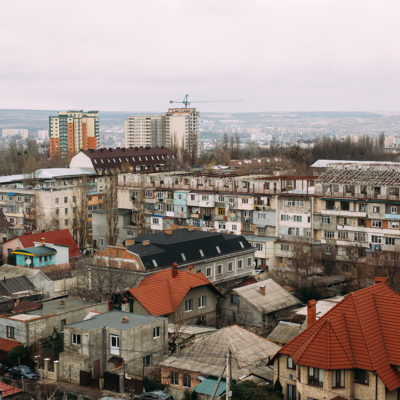
Moldova’s government has committed to universal access to health services following the withdrawal of Global Fund support. Over-priced medicines are presenting a challenge to achieving these targets.
HIV
15,132 people are estimated to be living with HIV in Moldova in 2018, with 5,865 on treatment. The government has expressed political will to achieve the 90-90-90 goals in its National Program for Prevention and Control of HIV/AIDS and Sexually Transmitted Infections for 2016-2020. However, nearly two-thirds of people remain without treatment and new infections continue to grow, with 832 new infections in 2017 and 905 in 2018.
To prevent new infections and improve and save the lives of people living with HIV, treatment coverage must increase. For this to happen, essential medicines need to be affordable.
Hepatitis C
15,400 people have been diagnosed with Hepatitis C, and a combined number of 11,000 people were treated for Hep C and/or Hep B under the 2017-2021 national program for Hep C. In 2017, the Ministry of Health, Labour and Social Protection allocated 35 million Moldovan Leu (approx 2 million USD) for the procurement of Hepatitis medicines. One of the goals of the government’s program is to provide at least 50% of patients with Hep B, C or D with quality treatment and services.
TB
3,858 people were diagnosed with TB in 2017 and treatment coverage has been rising, now standing at 87%. However, patient registration remains an issue, despite interventions designed to encourage early testing and treatment. Cases of multi-drug resistant (MDR) TB are high, causing a major threat for the success of the national TB program and effective disease control. To tackle the issue and attempt to reach everyone affected, Moldova has committed to free TB treatment. With Global Fund withdrawal, affordable treatment becomes even more important in order to increase treatment coverage, and tackle MDR-TB.
Dealing with prices during transition
Previously a recipient of Global Fund (GF) support, Moldova is now finalising the transition from donor funding to complete government funding, which undoubtedly adds pressure to the health budget. In addition, an analysis of prices, comparing GF-funded procurements and state-fund procurements, shows that GF procurement achieves lower prices.
Many of the drugs registered in Moldova are patent protected, with examples of evergreening patents in existence. With regards to HIV treatment there is only generic competition among four of the 17 registered drugs.
Without the purchasing power of the Global Fund, Moldova must negotiate fair prices with pharmaceutical companies and/or encourage the legitimate use of TRIPS flexibilities.
However, another factor contributing to the over-pricing of medicines is the FTA that Moldova has signed with the EU, and currently several TRIPS+ provisions are expected to be implemented in domestic legislation.
The UNDP supported the government in 2017 and 2018 with its set of procurements, the stated goals include helping to reduce the time, cost of delivery and improve the quality, by using UNDP procedures. The support is further valuable, especially during this transition period, but long-term fair pricing policies need to be secured if there is to be sustainable response to HIV and other treatment needs.
Our focus
The main focus of our partner’s work in Moldova is working on strategies that support the government’s commitment to universal access. For Positive People this means tackling the over-pricing of medicines so no-one goes without essential, life-saving medicines.
Positive People’s priorities include:
- Advocating for a more stringent patent examination process which does not allow unmerited patents.
- Positive People calls on the government to improve the legislation related to TRIPS flexibilities, in particular, compulsory licensing, so the country is not bound by the current TRIPS+ provisions, which if not addressed will result in higher prices of medicines for many years to come.
- There is a limited list of ARV medicines in Moldova, restricting competition within public procurement. Positive People plans to work with the government and propose ways to increase competition which then naturally links to reduced prices. Optimal treatment options should be on this list and inflated prices must not be a barrier.
- Engage community and civil society organisations (CSOs) to improve patient literacy, patient demand and diagnostic and treatment rates.
Last updated April 2019.

